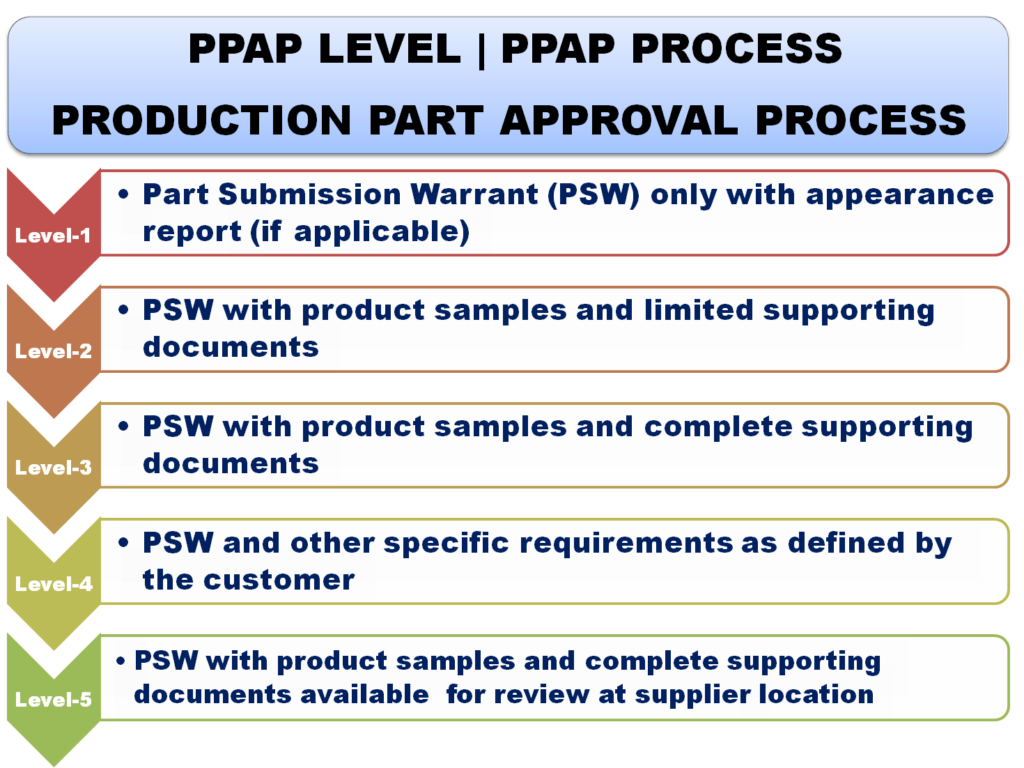Overview:
PPAP Level 3 is a part of the Production Part Approval Process, a standardized approach in the automotive industry for ensuring the quality and conformity of components and systems. Level 3 signifies a comprehensive submission package that includes all necessary documentation, measurements, and validation data to ensure that the production process can consistently reproduce parts meeting customer requirements.
PPAP Level 3 Requirements:
Documentation and Submissions:
- Process Flow Diagrams: Provides a visual representation of the manufacturing process, including inputs, outputs, and controls.
- Control Plans: Details steps taken to control and monitor critical process parameters and key characteristics.
- Measurement Systems Analysis (MSA): Includes studies confirming measurement system accuracy and repeatability.
- Statistical Process Control (SPC): Demonstrates process stability through statistical analysis of key parameters.
- Dimensional Results: Provides comprehensive measurement data ensuring part conformance with specifications.
- Material Certifications: Validates material properties and compliance with specified standards.
- Part Submission Warrant (PSW): A formal document confirming the completion and compliance of all submission requirements.
Compliance and Validation:
- Customer-Specific Requirements: Adheres to unique requirements specified by the customer or industry regulations.
- Validation of Processes: Confirms that production processes can consistently reproduce parts meeting defined requirements.
- Risk Analysis: Identifies and addresses potential risks associated with the manufacturing process.
Importance and Applications:
Quality Assurance and Customer Satisfaction:
- Quality Validation: Ensures that produced parts consistently meet customer requirements and expectations.
- Reduced Defects and Rework: Minimizes the risk of defects by validating the manufacturing process before full production.
Automotive Industry Significance:
- Supplier-Customer Relations: Crucial for supplier approval by automotive manufacturers, ensuring reliability and compliance.
- Regulatory Compliance: Aligns with automotive industry standards and regulations like IATF 16949.
Precision and Quality Assurance:
Verification and Validation:
- Documented Processes: Ensures all processes are documented, validated, and align with customer requirements.
- Comprehensive Record-Keeping: Maintains detailed records of all submissions, approvals, and compliance checks.
Continuous Improvement:
- Corrective Actions: Implements corrective actions to address any identified non-conformities.
- Feedback Loop: Encourages continuous improvement through feedback from validation and manufacturing processes.
PPAP Level 3 stands as a crucial stage in the PPAP process, ensuring that all documentation, measurements, and validation data are meticulously compiled and submitted. Its role in confirming production capability and part conformance helps in fostering strong supplier-customer relationships and ensuring consistent quality in the automotive supply chain.

